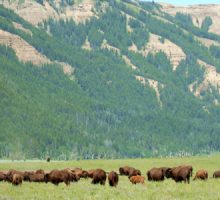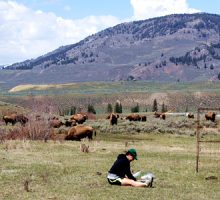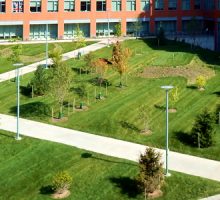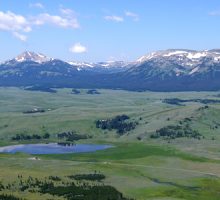Welcome to the Frank Lab in the Department of Biology at Syracuse University
The Frank Lab studies and explores factors that regulate the structure, species composition, biodiversity and energy, and nutrient metabolisms in terrestrial ecosystems.
Since 1988, Doug Frank has studied the effects of grazing ungulates, such as elk, bison, and pronghorn, on the grasslands of Yellowstone National Park, which is home to highly coevolved plant-grazer-soil microbe systems.
He and his team investigate important interactions among these trophic levels, which, in turn, facilitate energy and nutrient flows in Yellowstone grasslands and foster stability of this ecosystem that experiences high chronic levels of grazing.
The Frank Lab utilizes field and laboratory experiments. In the field, he and his team erect ungulate enclosures to create an un-grazed treatment and then compare plant growth and soil processes in grazed versus un-grazed grasslands. In the lab, experiments are conducted in the greenhouse or environmental chambers to determine how mycorrhizae, nutrient availability, and soil microbial composition and diversity may mediate the effect of grazing on plant growth.




